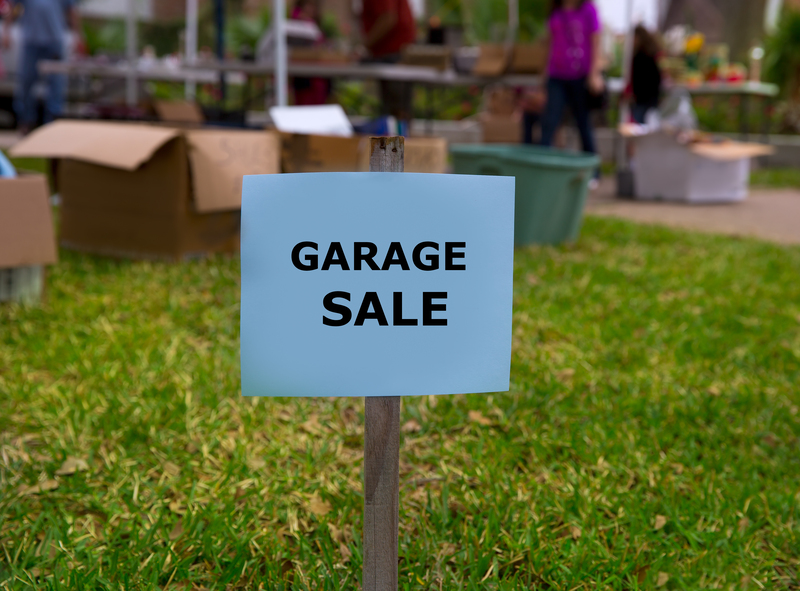How to Handle Bulky Waste Items Without Breaking the Bank
Disposing of oversized trash--such as broken furniture, old mattresses, or large appliances--is challenging, but it doesn't have to drain your wallet. Properly managing bulky waste items can save money, protect the environment, and even support your local community. In this guide, we'll show you cost-effective, sustainable, and practical solutions for handling bulky rubbish without overspending.
Understanding Bulky Waste: What Qualifies?
Bulky waste refers to large items that are too big to be removed by regular trash collection. These are sometimes called large waste items, bulk trash, or oversized waste. Common examples include:
- Old sofas and armchairs
- Broken mattresses and beds
- Large electronics and televisions
- Refrigerators, freezers, washing machines
- Wardrobes and large cabinets
- Desks, tables, and chairs
These items require special consideration because they often can't be left on the curb or put in standard bins. Disposing of them responsibly and affordably might seem tough, but with a few tips, you can manage bulky junk without spending a fortune.

The Financial Challenge of Disposing Bulky Items
Attempting to throw away large waste items using regular methods can result in unexpected bills, hefty fines, or environmental hazards. Factors contributing to costs include:
- Special pick-up fees from your municipality
- Charges at landfills or waste transfer stations
- Hiring private removal contractors
- Potential furniture disposal surcharges
Bulky-item removal doesn't have to be expensive if you explore alternatives and strategic options available in your area.
Budget-Friendly Ways to Handle Bulky Waste
1. Take Advantage of Free Municipal Collection Programs
Many cities offer scheduled bulky waste pick-up days--free or for a nominal fee--to homeowners and residents. Check your local government's website or give them a call. By registering for these events, you can have your large household items collected at the curb on specified dates with no extra charge.
- Check requirements: Some programs only accept certain items or have limits per collection.
- Book early: These services are popular and slots can fill up fast.
- Prepare items: Some cities require you to break items down or tie them for ease of collection.
Pro tip: If your municipality doesn't offer free pick-up, ask about discounted bulk item collection grants or vouchers.
2. Donate or Give Away Usable Items
One person's trash is another's treasure! If your bulky items are still in decent condition, consider passing them along.
- Charity organizations (like Goodwill, Habitat for Humanity, or local shelters) often accept furniture, appliances, and mattresses.
- Online platforms such as Facebook Marketplace, Craigslist, or Freecycle allow you to list items for free or low prices--sometimes with buyers willing to collect them themselves.
- Host a "curb alert": Leave items labeled "free" on your curb for neighbors. Ensure this is permitted by local laws.
Donating helps you save money on disposal, keeps items out of landfills, and can even qualify for tax deductions if you get a receipt from a registered charity.
3. Sell Large, Unwanted Goods
Before paying to have that old armoire or elliptical machine taken away, try making some money from it!
- List on community marketplaces, such as OfferUp, Nextdoor, eBay, or garage sale groups.
- Take clear photos and write informative descriptions.
- Highlight any flaws honestly--some people are happy to repair or repurpose items.
Even a small sale price offsets disposal costs and means your item is reused instead of trashed.
4. DIY Transport to Local Recycling or Drop-Off Centers
For those with vehicles capable of hauling, handling bulky waste removal yourself is often the cheapest route. Here's how:
- Research area facilities: Search for local recycling depots, waste transfer stations, or landfill centers that accept bulky waste.
- Compare fees: Some charge by weight, item type, or offer special low rates for residents.
- Check for recycling programs: Many centers recycle metals, mattresses, or electronics for free or at a discount.
Make sure to follow safety protocols when loading or unloading heavy items. Ask about accessibility or assistance with unloading if you need help.
5. Organize a Neighborhood Collection Event
Pool resources by teaming up with neighbors to split costs, rent a dumpster, or schedule a shared junk pick-up. It's easier, more economical, and can even build stronger community connections!
- Contact local haulers for group rates or special deals.
- Promote the event in your community--coordinate for a single large pick-up or multiple stops.
- Include information on what items are accepted.
Sharing costs reduces the expense for each participant while encouraging responsible bulk item disposal.
6. Upcycle or Repurpose Your Bulky Items
Get creative--turn what you'd planned to toss into something useful or beautiful! Some examples:
- Convert a worn-out door into a workbench or dining table.
- Design a dog bed from an old mattress or futon.
- Repurpose broken chairs as garden planters.
- Use bed frames as trellises for climbing plants.
DIY upcycling reduces your disposal volume and gives your home or garden a unique touch, all while saving money.
Tips for Affordable Bulky Waste Management
- Avoid illegal dumping: It can result in substantial fines and environmental harm.
- Know your city's rules: Improper placement on curbs or bins may result in surcharges or missed collection.
- Break down items when possible: Disassembled or compacted waste is easier (and sometimes cheaper) to transport and dispose of.
- Ask about free electronics recycling: Many cities offer this service for TVs, computers, or fridges, especially when purchased new replacements.
- Plan ahead: Avoid last-minute, urgent removal which often costs more.
What Not to Do With Bulky Waste
- Do not dump illegally: Abandoning items in alleys, vacant lots, or dumping them in woods can lead to steep penalties.
- Don't expect regular trash service to collect them: Many curbside services skip oversized waste and leave it behind.
- Don't burn items: Unsafe and usually against law--especially with furniture or electronics, which can emit toxic fumes.
When Is Hiring a Junk Removal Service Worth It?
Sometimes, hiring professionals--while more costly than DIY--makes sense. If you have:
- Multiple heavy or hazardous items you can't safely move
- Time-sensitive needs (such as moving deadlines or property sales)
- No access to suitable transport
- Physical limitations or safety concerns
Get multiple quotes and compare rates. Look for companies that recycle or donate before dumping, and check for online reviews.
Environmental Impact and Social Responsibility
Responsible bulky waste disposal is about more than just saving money--it makes a difference in your community.
- Proper recycling keeps reusable materials (like metal and wood) out of landfills.
- Donation supports charities, shelters, and those in need.
- Group organizing reduces transportation emissions.
- Creative upcycling inspires others to think sustainably.
Your efforts keep neighborhoods cleaner, reduce landfill overflow, and can spark a culture of reuse and thoughtful consumption.
Frequently Asked Questions on Cheap Bulky Waste Solutions
-
Q: How do I know if my city offers free bulky item pick-up?
A: Visit your city or county's waste management website, or call their customer service line. -
Q: Where can I donate large furniture in my area?
A: Search for local charities online, or look up donation centers for furniture, appliances, and electronics. -
Q: Are there affordable junk haulers near me?
A: Check online listings, read reviews, and always ask for price estimates before agreeing to a service. -
Q: How can I safely move heavy items myself?
A: Use furniture dollies, ask for help from friends or neighbors, wear gloves, and disassemble items whenever possible.

Conclusion: Handling Bulky Waste Wisely and Inexpensively
Managing bulky waste items on a budget is achievable for everyone with a little planning and creativity. Utilize city services, invest time in donation or resale, consider DIY transportation or group efforts, and find ways to repurpose when you can. Always choose eco-friendly and legal disposal methods.
By following these strategies, you can clear your space, protect the planet, and keep extra cash in your wallet--all while dealing with large, unwanted items like a pro!
Bonus: Resources for Frugal Bulky Waste Disposal
- Earth911.com: Search by item and zipcode for nearby recycling options.
- DonationTown.org: Find and arrange free pick-up from charities.
- Nextdoor: Neighborhood platform for giving or selling "free to good home" items.
- Local government websites: Information on laws, curbside programs, and recycling centers.
Ready to tackle your bulky waste disposal without breaking the bank? Put these tips into action, safeguard your savings, and contribute to a cleaner, greener community today!
